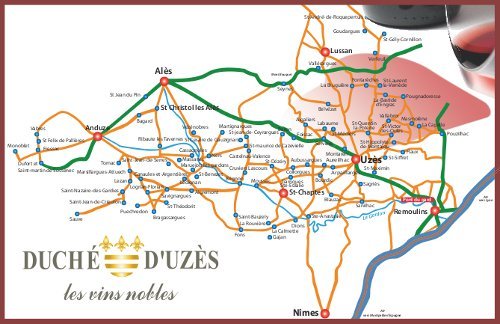I will be there. Not least because the names of the winners have already been announced, and I agree with virtually none of them.
So I want to know what the judges know that I don’t. I want to know why the wines which I search out for drinking with family and friends and which I regard as both typical of their category and superior in their category have failed to win even a bronze.
(Wine has been produced here since the Middle Ages, but it got VdP status only as recently as 1995, when it split from the Cévennes. Since then, it has been fighting for the next level of recognition. Last month, AOC (appellation d’origine contrôlée) Uzès was finally signed off in Paris and we should see it on the labels of our local wines next year.)
But what interests me is how these things are judged. How can I, a wine drinker of many years’ standing (and sometimes not standing), with both an enthusiastic amateur and – through Wilde’s - professional interest in wine, be so wrong?
Easily, according to a recent article in The Observer and subsequent discussion in Decanter.
It turns out that even the trained palates of full-time critics with MW after their name are frequently neither correct, nor consistent.
In blind tastings, eminent professional tasters have given “radically different scores” to the same wine from the same bottle within the space of a few minutes.
Of course, wine criticism is the same as other criticism. It is the relationship between the taster and the wine, at a particular time, in a particular space, in a particular context. And that can seldom be replicated precisely, if at all.
We also know that external factors can create a significant effect. A French academic found that labels mattered. A Grand Cru label produced positive reviews; a vin de table label negative reviews. Of course, it was the same wine. Academics in Edinburgh found that playing Jimi Hendrix whilst drinking Cabernet Sauvignon boosted scores by 60%. And so on and so forth: there are many different stories of wine critics getting it wrong.
A typical wine contains 27 organic acids, 23 varieties of alcohol, more than 80 esters and aldehydes, 16 different sugars, and dozens of vitamins and mineral compounds.
That’s not only beyond me. It’s beyond anyone. However sophisticated their palate.
So there is very little science involved in these judgements. What there is, is vast experience of long-term tasting, and a vocabulary which expresses and justifies these judgements.
Tasting wine is subjective. Wine critics are as subjective as the rest of us. But it’s always a good idea to find one with whose judgements and palates one broadly agrees (HRH Jancis and Fiona Beckett to name but two) and use them to do the hard research and prepare short lists.
The problem is, neither have turned their attention to AOC Uzès. At least not yet.
But when they do, I’ll bet they agree with me rather than the local judges of the Concours des Vins.
Today from the everysmith vault: Jimi Hendrix, Night Birds Flying: "You pass me that bottle, and I'll sing y'all a real song." Goes down really well with a glass of Cabernet Sauvignon.






 RSS Feed
RSS Feed